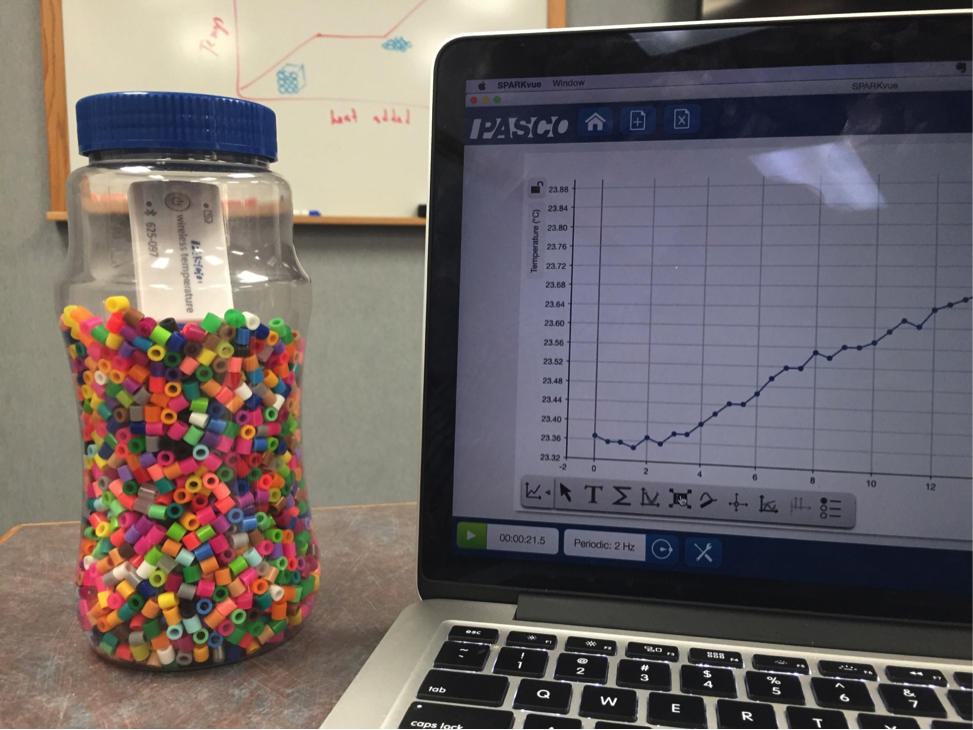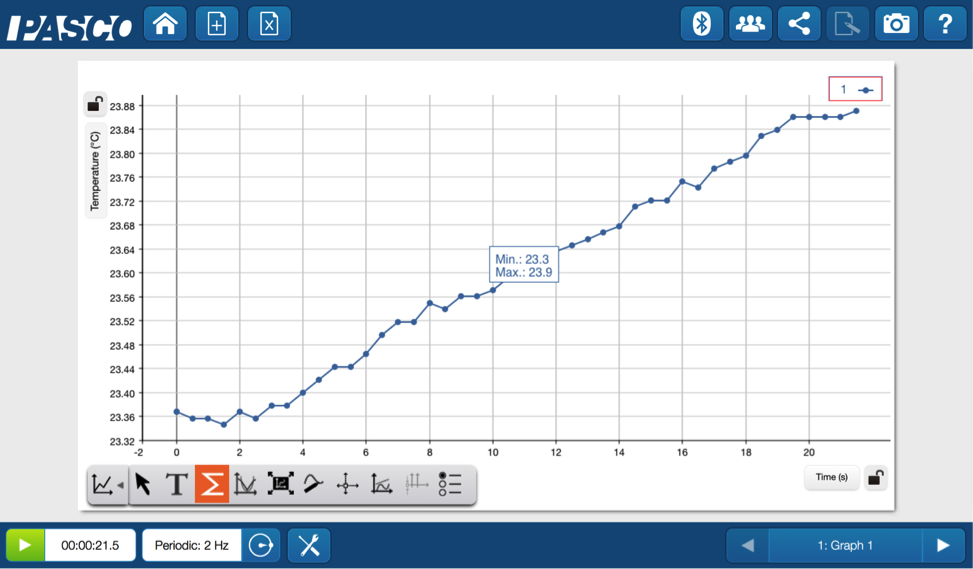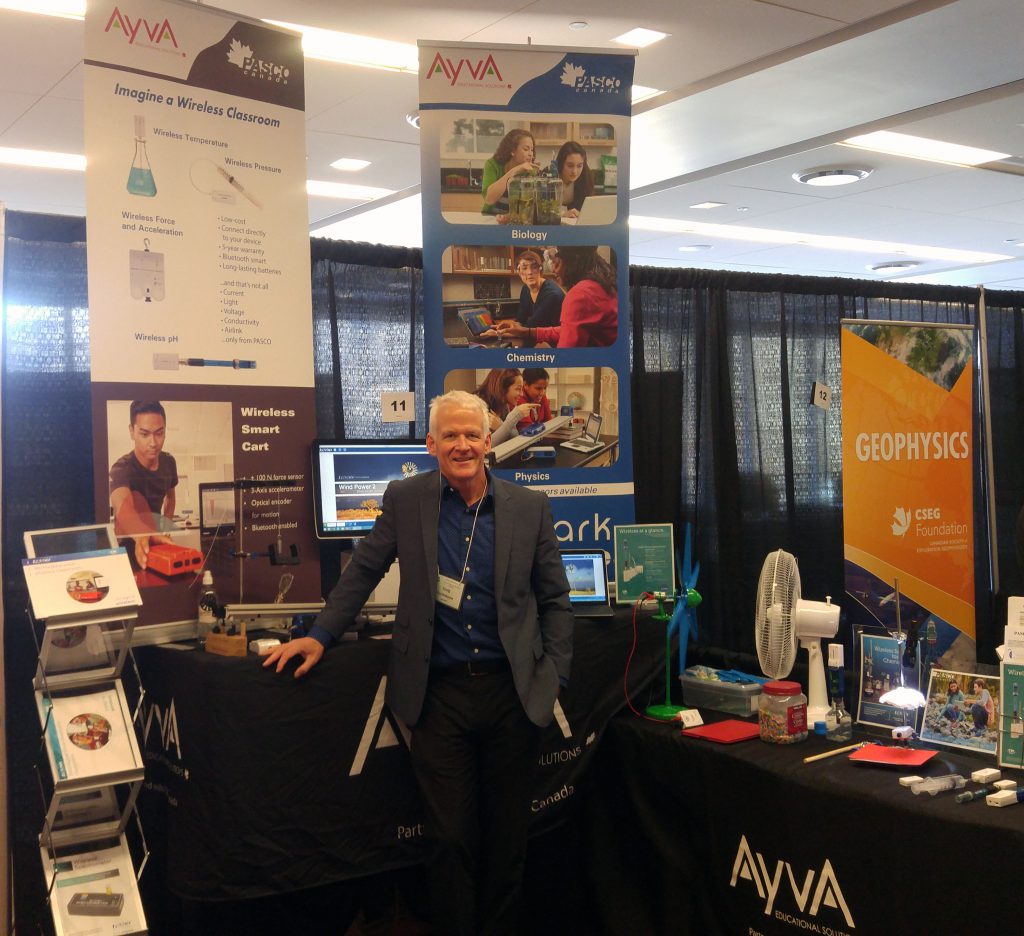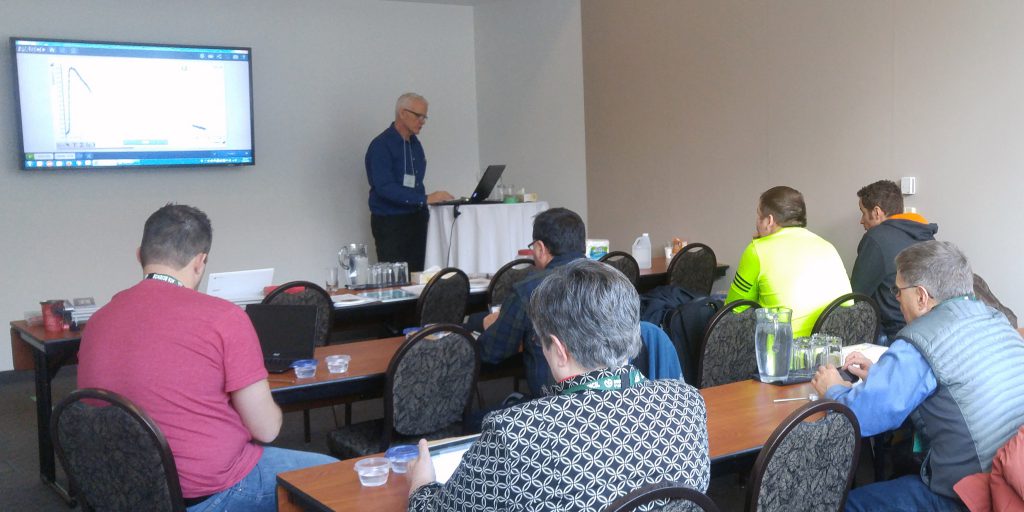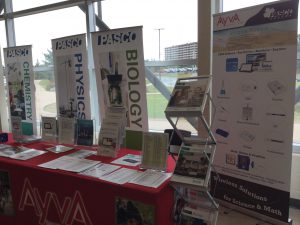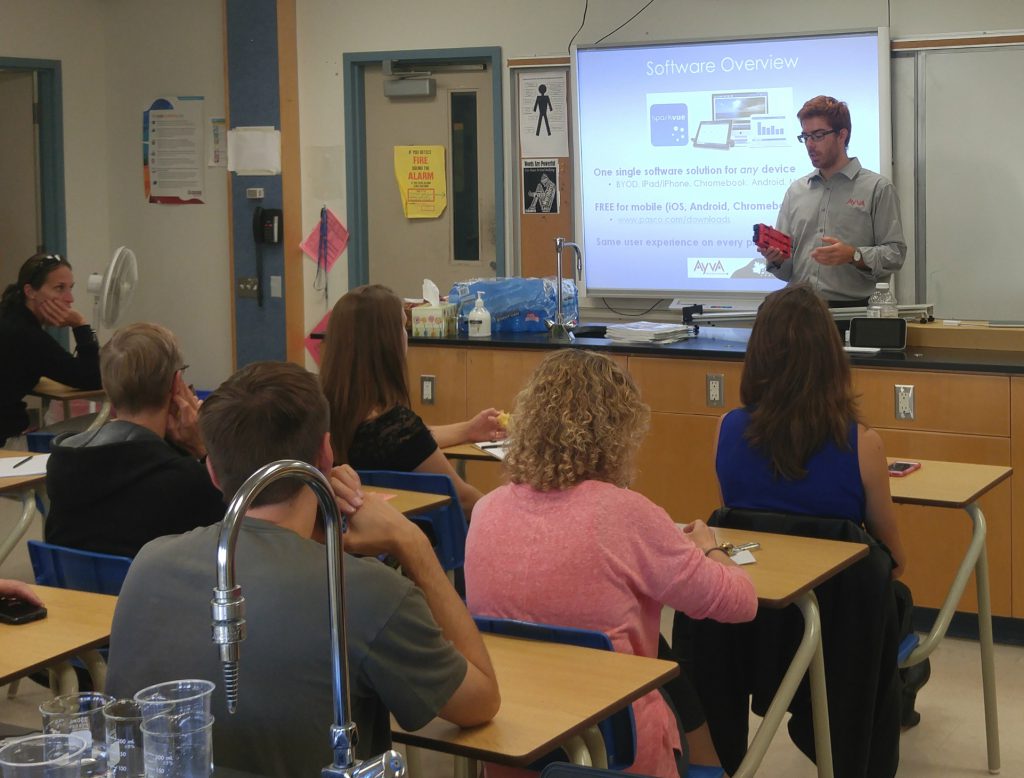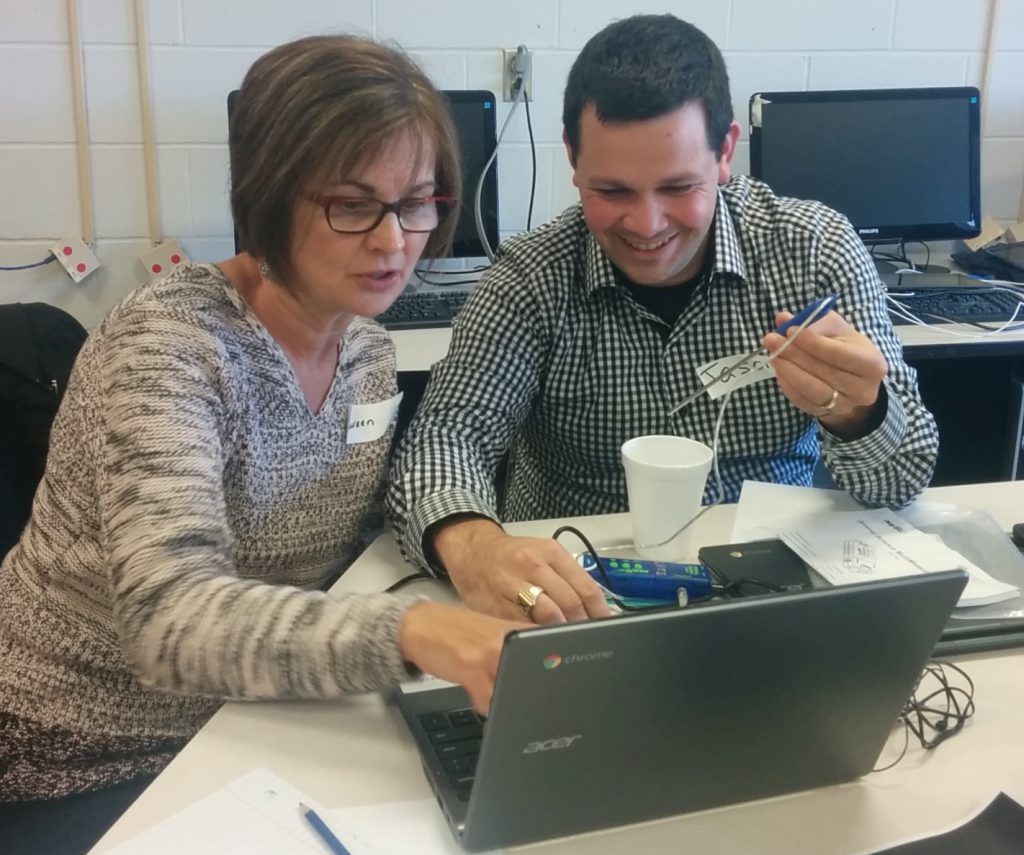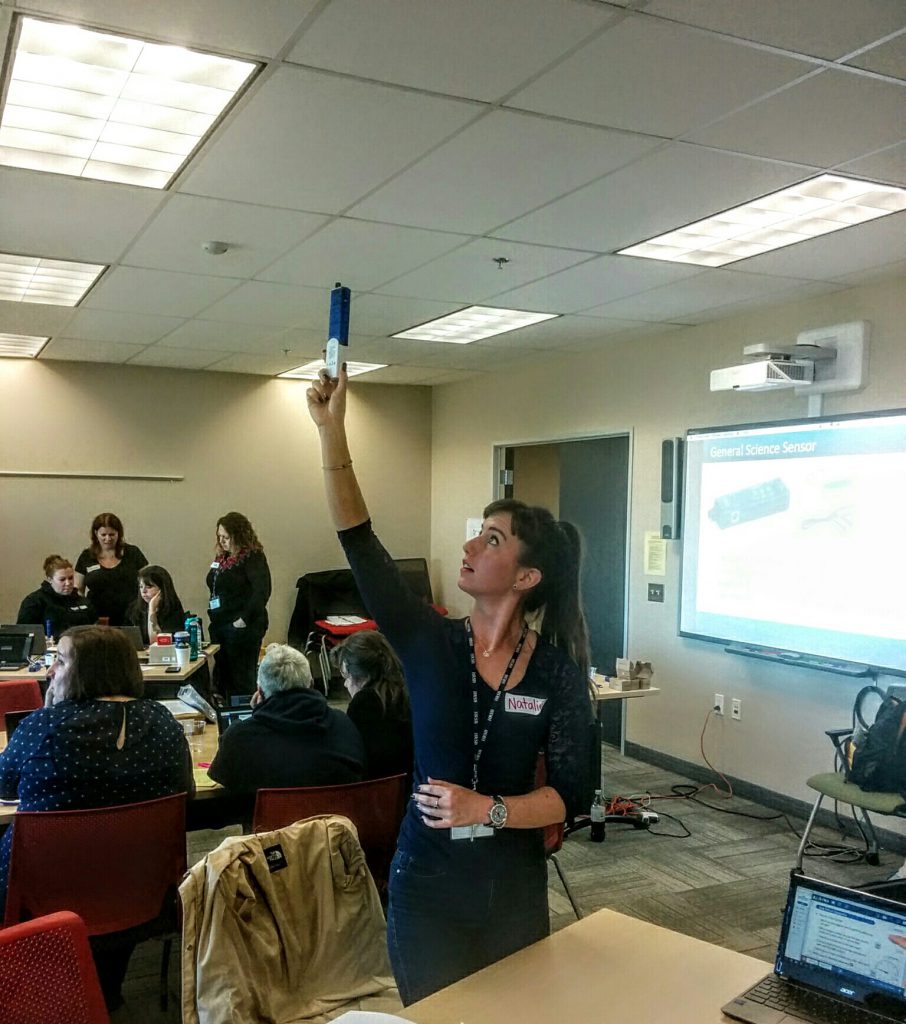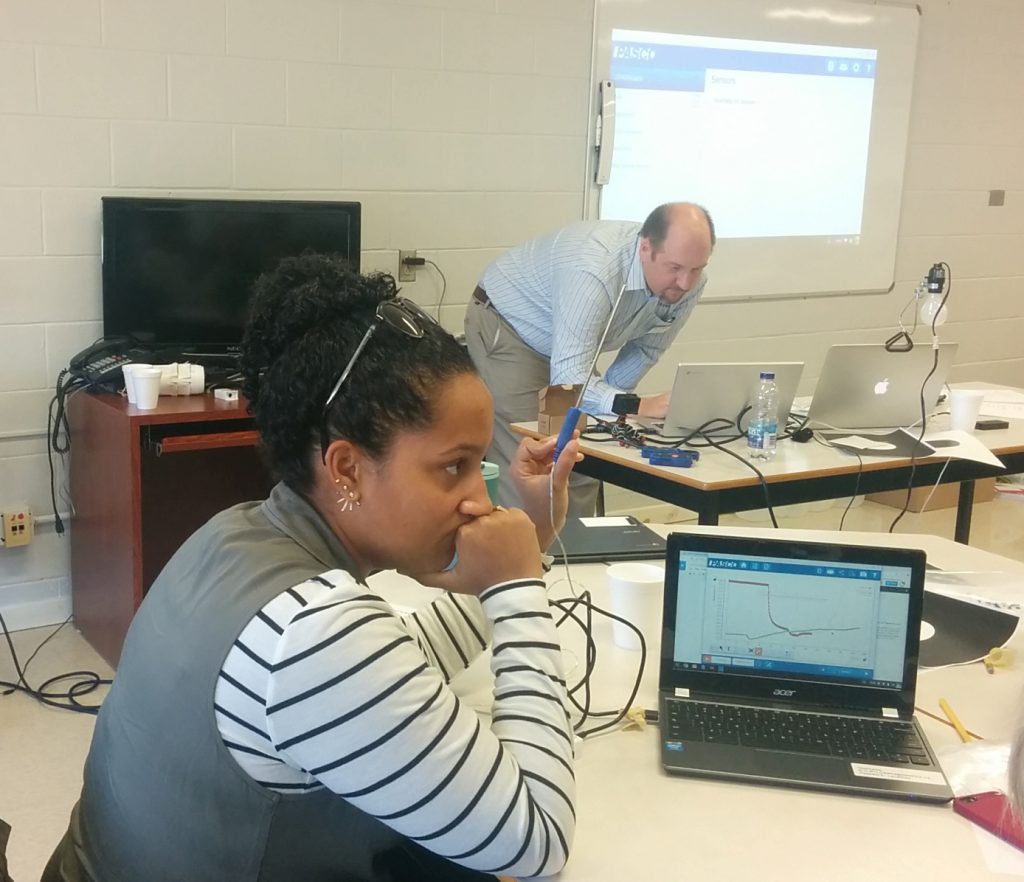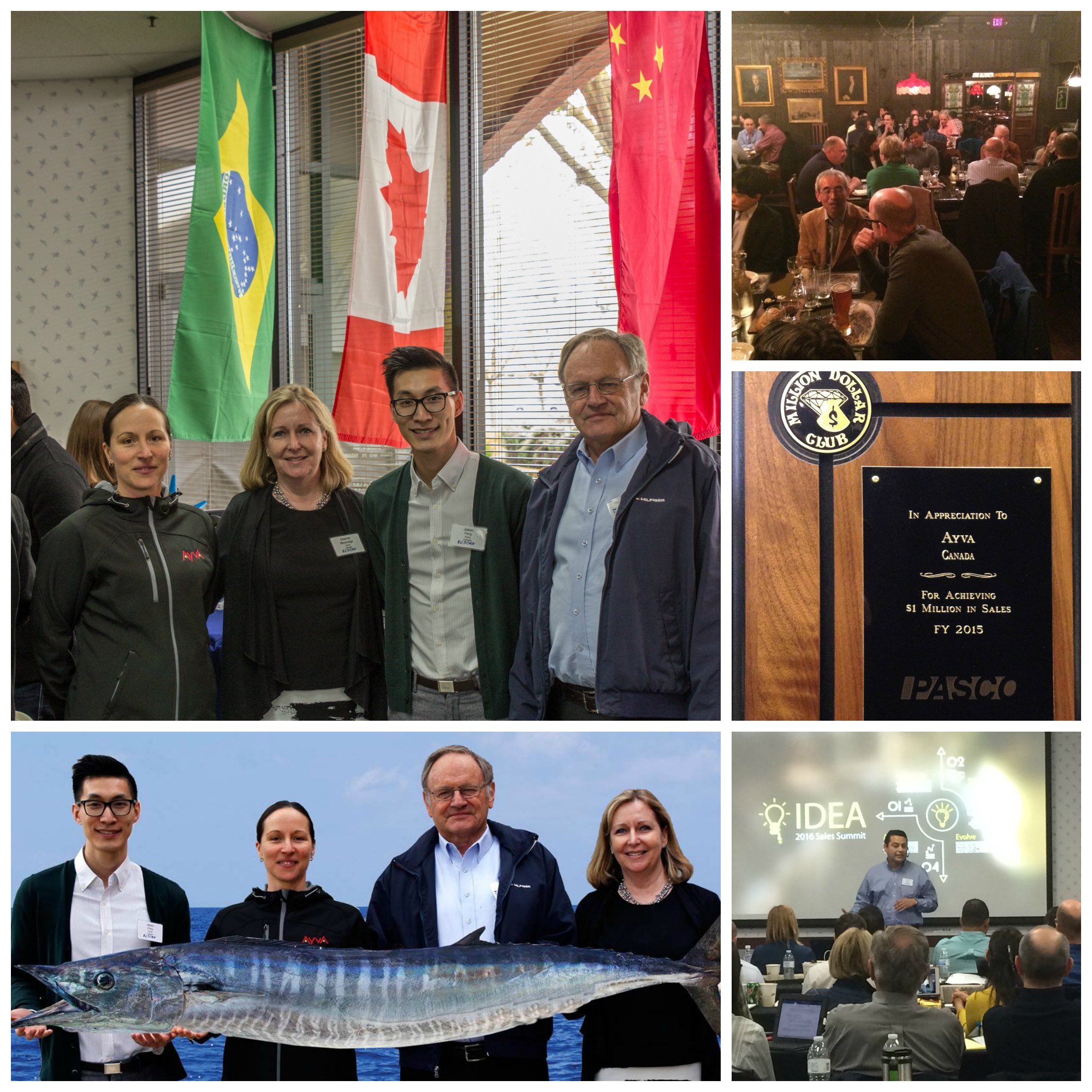Temperature misconceptions? Shake it off.
Most students understand that things get warmer as temperature goes up, but it is in the science lab that we have an opportunity to really help them understand what temperature means. One of the core ideas in Physical Science is that temperature is actually a measure of the kinetic energy of the particles of the matter. But when you’ve only thought about temperature as being hot or cold, this is an especially difficult concept because the “particles of matter” are hard to visualize.
One way to bring this concept into focus is to model the sub-microscopic world with something that the students can physically manipulate. We’ll shake things up in the lab by modeling molecules with some craft beads.
To measure the temperature, I used a Wireless Temperature Sensor and SPARKvue software. After placing sensor into an empty jar with the beads, I just needed to add some energy. Next step… just shake that jar thing. With a wireless sensor this is easy—just put the lid on and shake it up
I imagine that an entire class of student shaking these beads could be quite a cacophony. These engaged students would definitely see (and hear) the motion of the particles inside their sample of matter. You may need to reign them in a bit and remind them that they should “shake it, don’t break it.”
We know the dancing around turned up the heat in your class, but did all of this movement affect the temperature in the jar? Let’s take a closer look at the data.
One way to bring this concept into focus is to model the sub-microscopic world with something that the students can physically manipulate. We’ll shake things up in the lab by modeling molecules with some craft beads.
They say fakers gonna fake, fake, fake, fake, fake, but the data doesn’t lie. While the temperature increase was small, we can clearly see that the sensor did measure a steady increase in the temperature.
Now that they have the basic idea of temperature, you can have the students tune their own own investigation to determine the relationships among the energy transferred, the type of matter, the mass, and the change in the average kinetic energy of the particles as measured by the temperature of the sample.
While the students are devising plans (and of course competing to see who can change the temperature the most), you can rest assured that they are understanding disciplinary core ideas and incorporating engineering practices and cross cutting concepts.

